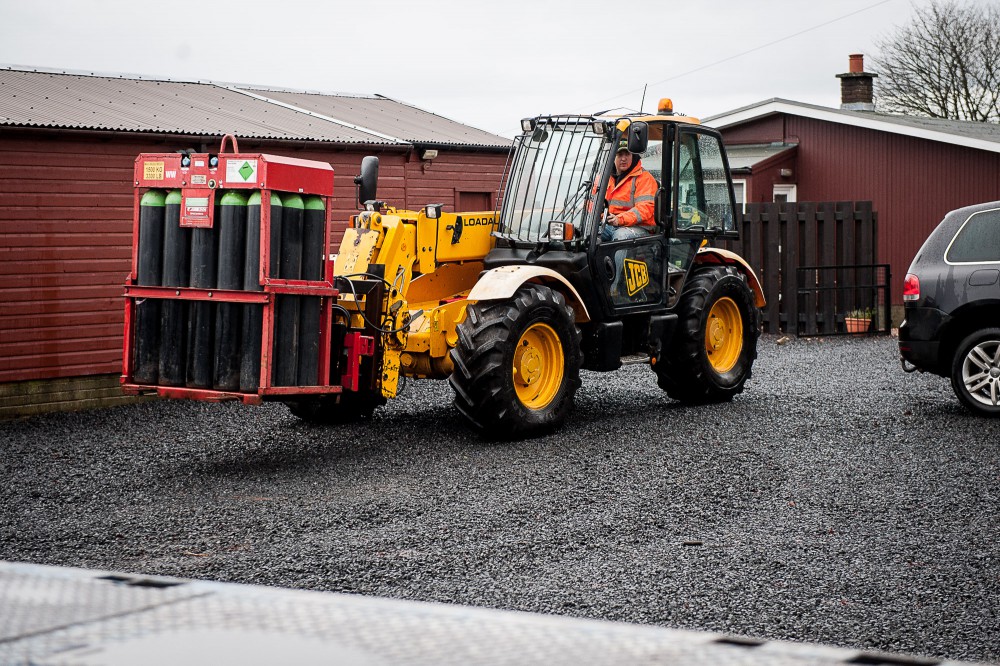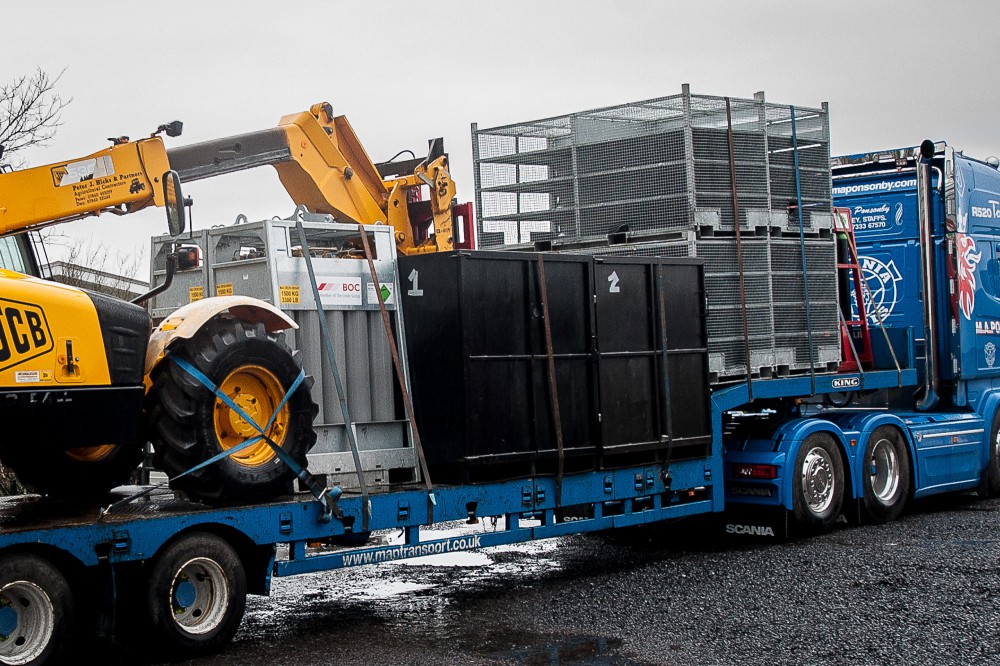EQUIPMENT believed to be used for the gassing of 40,000 chickens was seen arriving today at the Fife farm hit by an outbreak of bird flu.
Craigie Farm, near Dunfermline, has been under lockdown since Sunday night.
By Monday evening lab tests had confirmed the case of “Avian Influenza” – a disease that has killed millions of birds in Asia and Africa and even spread to humans in some cases.
Disease experts assured local farmers that the strain of the virus found is “very mild” – but have urged them to remain vigilant and have put up a 1km “control zone” around the infected site.
They have also ordered a cull of all chickens on the farm in order to stem the spread of the disease – which experts fear could cause a devastating pandemic if it combines with the human flu virus.

This morning a truck could be seen arriving on the site – carrying tanks of argon and nitrogen, which have often been used in the past to kill infected birds.
The truck was also carrying a set of cages and containers which it is thought will be used to gas the chickens.
It is believed that the chickens will then be incinerated at an on-site incinerator, or in fire pits.
A spokeswoman for the Department for Environment, Food and Rural Affairs (DEFRA) confirmed that the cull of just under 40,000 birds at Craigie Farm near Dunfermline, Fife, is now set to go ahead tomorrow.
Speaking after the case of bird flu on the farm was confirmed, Scotland’s chief veterinary officer Sheila Voas said: “All the evidence so far suggests we are dealing with a very mild form of H5N1 avian influenza, which is not the same as the strain that has been causing problems in Asia and north Africa.
“Further tests are currently being carried out to confirm this but, in the meantime, we are taking no chances.
“As a precaution to prevent the spread of disease – and in line with our robust procedures for dealing with avian flu – we have already put in place movement restrictions around the farm and all birds on the premises will be humanely culled.

“We are looking into possible sources of this infection in Scotland but it is normal for such viruses to circulate among wild bird populations, especially waterfowl. However, it is important that poultry keepers remain vigilant for any signs of disease and to ensure they are maintaining good biosecurity on their premises.”
Cabinet Secretary for Rural Affairs, Food and the Environment Richard Lochhead added: “We have seen a number of cases of avian influenza across Europe in the past few months including three separate cases in England last year, but it looks like we are dealing with a very mild strain here.
“The Scottish Government and our partners continue to do all we can to contain and prevent the spread of disease.
“Any poultry producers who are concerned should immediately seek veterinary advice.”
The food standards agency has said they do not believe the outbreak poses a risk to consumers.
In 2012 90,000 tonnes of chicken valued at over £99 million was produced in Scotland, whilst Scotland’s egg production industry was valued at over £43m.
